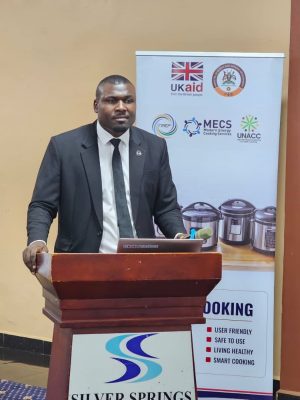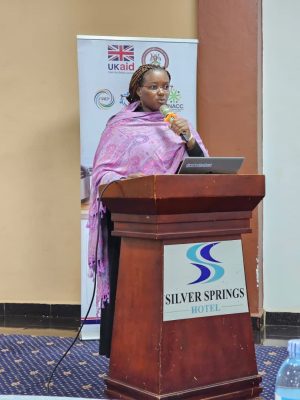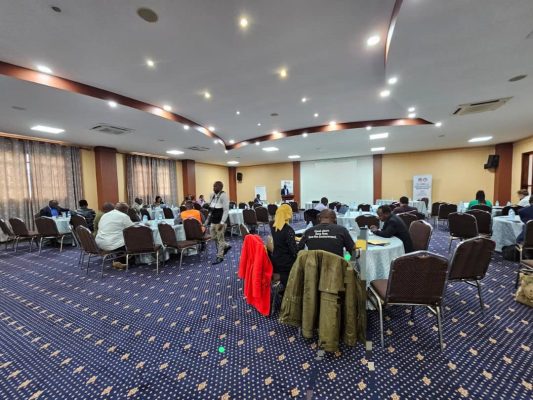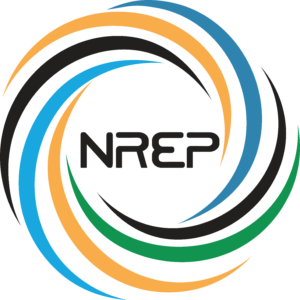On Thursday, 7th May 2025, stakeholders from Uganda’s clean energy sector gathered at Silver Springs Hotel, Bugolobi, for a high impact workshop focused on innovative financing mechanisms to scale up clean energy businesses. The event, organized by the National Renewable Energy Platform (NREP) in collaboration with the Ministry of Energy and Mineral Development and with support from the UK government brought together energy entrepreneurs, policy makers, financial institutions, community organizations and the clean cooking fraternity among others to chart new strategies for increasing energy access and promoting sustainable development.
Key Highlights
Uganda’s evolving Energy Landscape
The session was moderated by Dr. Paul Nduuhura and Mr. Oketch Mark Lazarus from NREP; and Dr. Crispus Tashobya from the Clean Cooking Unit. Key note speakers included Ms. Ruth Komuntale from ECOCA; Ms. Waringa Matindi from Village Energy; Dr. Emmy Wasirwa from Wana Solutions Uganda Ltd; Dr. Dominic Mucunguzi from UGIFT Project; and Mr. Frank Yiga from Innovex. During the workshop, participants reviewed the current energy situation in Uganda. As of mid-2024, the country had increased its installed capacity to 2,048.1MW. However, only 57% of the population had electricity access, with 19% connected to the national grid and 38% relying on off-grid systems. Biomass continued to dominate, contributing over 80% of total energy consumption.
It was mentioned that while the national goals under the Third National Development Plan (NDPIII) aim to raise per capita electricity use and reduce dependence on traditional fuels, progress has been limited by the following challenges;
- Infrastructure gaps, that have led to limited grid access, especially in remote areas.
- High costs of electricity; electricity tariffs in Uganda are relatively high due to deemed energy.
- Limited financing models in clean energy i.e. the sector has limited innovation with regards to financing models to scale clean energy interventions.
- High initial capital costs of renewable energy.
- Policy and Regulatory barriers. Implementation of the available national policies, regulations and standards for clean energy are sometimes hampered by weak enforcement.
- Capacity building and technical skills. The energy sector in Uganda faces a shortage of skilled professionals to implement, operate and maintain new and modern energy technologies.


Lessons from Clean Cooking and Productive Energy Use
A major focus of the workshop was on carbon financing for clean cooking. Presenters shared case studies from Ugandan enterprises that have successfully leveraged carbon credits to subsidize the cost of improved cook stoves and cleaner fuels. These credits, generated from reduced greenhouse gas emissions have helped to make clean cooking solutions more affordable to low-income households.
The workshop also showcased examples of productive use of energy (PUE) where energy is applied in ways that improve incomes and services. Participants examined innovations such as solar irrigation systems in agriculture, solar powered refrigeration in health clinics and mini-grids supporting rural businesses. Despite their potential, these technologies remain underutilized due to high upfront costs and lack of tailored financing models.
Franchising as a path to scale to scale
The franchise business model was introduced as a scalable way to expand clean energy access. A case study on wana solutions Uganda limited, café javas, were illustrated how entrepreneurs can operate under a franchise network, gaining access to training, products and brand support to deliver clean cooking technologies to undeserved communities. Attendees discussed the potential of such models in growing Uganda’s clean energy market sustainability.
Innovative Financing Models Discussed
The event featured rich discussions around financing tools designed to bridge affordability and investment gaps. These included:
- Pay-As- You- Go (PAYG) systems
- Energy a-as-a-service business models
- Blended Finance and impact bonds
- Carbon credit financing for PUE
- Crowdfunding for community projects
- Microfinance and energy access venture funds
Each model was evaluated for its relevance to Uganda’s energy access goals and entrepreneurial environment.
Key Outcome & Takeaways
The workshop concluded with clear action points and forward-looking strategies, including:
- A call for policy reforms to strengthen support for clean energy entrepreneurs.
- Expanded awareness and uptake of carbon financing in clean cooking.
- Recognition of PUE as a critical driver for rural development.
- Identification of franchising as a viable model for scaling distribution.
- New collaborations between financiers, entrepreneurs and regulators.
- Opportunities for local businesses to join the solaGeo Franchise network

The workshop served as a timely reminder that achieving universal access to modern energy in Uganda requires more than just technology. It demands bold financing strategies, inclusive business models, and collaborative action. The momentum generated will continue to fuel discussions and investments in Uganda’s clean energy future.



